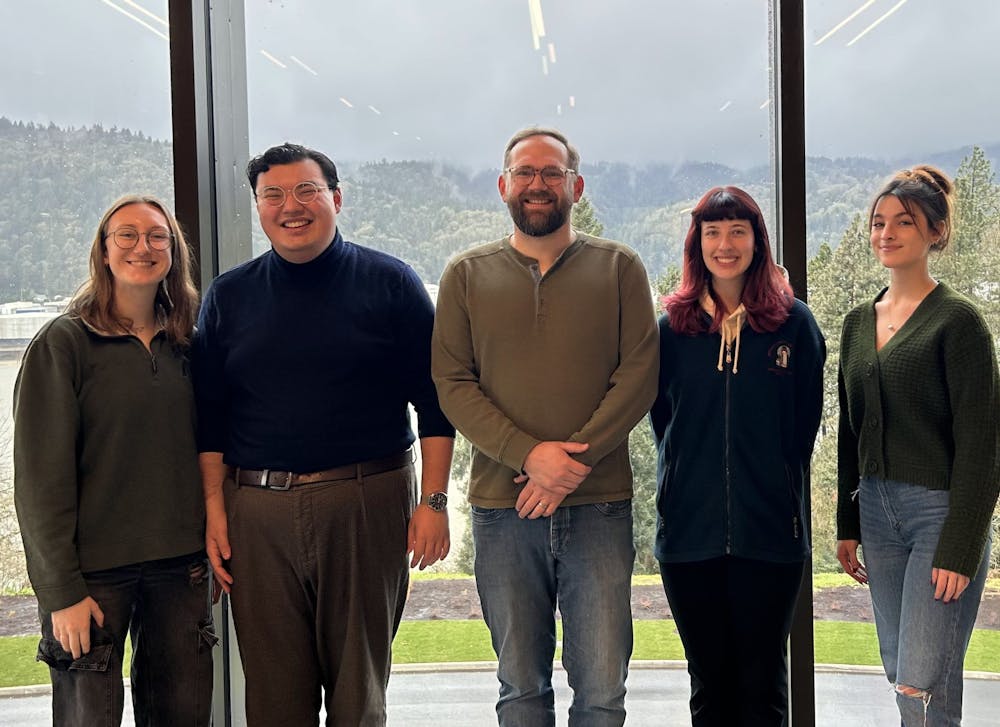It’s clear that the events on campus recently and the emails from Fr. John Donato, CSC, the vice president of student affairs, deeply affected the UP community. At the end of Donato’s second email titled “An Apology,” he addresses the student population directly: “And to all students, whether you welcomed my email or rejected it, know that I am committed to finding better, more productive methods for discussing this topic and others.”
We’re here to respond to this email, but to also share tools for anyone who is looking for better, more productive methods of navigating very complex and difficult conversations around topics like abortion.
When discussing issues such as abortion, it’s important to name the fact that we’re talking about the topic from within a deeply misogynistic and patriarchal system — it’s necessary to recognize that limiting the bodily autonomy of people who can give birth, even for the sake of saving a potential life, has created generational trauma.
Students on this campus, and on college campuses all over the country, are affected by this trauma in very real ways. As administrators, priests, professors — and as friends — we must do more than claim to encourage “interfaith and intergroup dialogue.”
As a student/faculty research group dedicated to studying religion and power, the CHIRP Lab has been focusing on ambiguous language and its potential to perpetuate abusive patterns of behavior within the Roman Catholic Church.
We’ve argued that within the cultures of Roman Catholic clergy, the virtue of obedience is described and practiced in contradictory ways. These contradictions create ambiguous expectations that can cause a sense of powerlessness within members of the clergy. This sense of powerlessness creates contexts that are more likely to foster abusive behaviors. To avoid such abusive cultures, vicious forms of obedience must be recognized and purged from clerical culture.
In our work this semester, we studied obedience as a virtue, one which needs to take into account the particular context we find ourselves in. To find a virtuous amount of obedience, we need to strike an appropriate balance between blind obedience to authority and brash, anti-authoritarian disobedience.
Of course, this is by no means a call to be disobedient for the sake of being disobedient. Instead, this means that, as a community, we should exercise a healthy amount of caution in what we accept and what we question. With virtuous obedience, personal autonomy and intellectual agency are encouraged and protected. And within the context of this university, it means that we need a place where open and respectful dialogue surrounding abortion and reproductive rights is not only encouraged but actively protected.
In his same apology email to students, Donato said, “the Church’s teaching on seamless garment matters such as abortion (but also including the death penalty, euthanasia, unjust war, and other topics) is clear and unequivocal.” While certain Roman Catholic teachings may feel clear and unequivocal to some people, this is rarely true.
For example, Donato’s inclusion of the death penalty illustrates that these issues are continually evolving. Just because the current teaching of the Catholic Church's magisterium might be clear, that does not undo the historical fact that its teaching has evolved over time. Whenever we see the evolution of moral teachings within the Church (e.g., death penalty, unjust war, usury, etc.), that evolution is always the result of often contentious conversations undertaken by people with diverse ideological perspectives. If we act as if these are unchanging truths, then no amount of dialogue or discernment can be productive.
This is to say that we have some recommendations in response to Donato's request for "more productive methods for discussing this topic and others." We suggest that this institution take ownership of the patriarchal context of this issue and allow for speakers and clubs that are dedicated to advocating for women's rights and for reproductive health.
We’re glad that the University of Portland has guidelines for protests that protect speakers like Monica Snyder while also still allowing for student protests. We are calling on the institution to extend that same courtesy to people who want to critique the Church's current teachings around abortion. By practicing virtuous obedience, we are disobedient with a purpose. This means intentionally making space for respectful and open dialogue and then working to protect that space as well.
Ben Carey-DiGregorio is a junior at the University of Portland. He can be reached at careydig25@up.edu.
Cami Calabrese is a junior at the University of Portland. She can be reached at calabres25@up.edu.
Chloe Cobos is a junior at the University of Portland. She can be reached at cobos26@up.edu.
Kate Seddon is a senior at the University of Portland. She can be reached at seddon24@up.edu.
David Turnbloom is an Associate Professor of Theology at the University of Portland. He can be reached at turnbloo@up.edu.
Have something to say about this? We’re dedicated to publishing a wide variety of viewpoints, and we’d like to hear from you. Voice your opinion in The Beacon.








